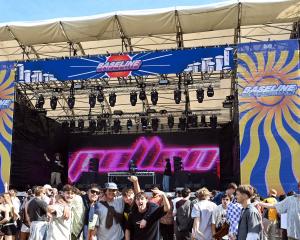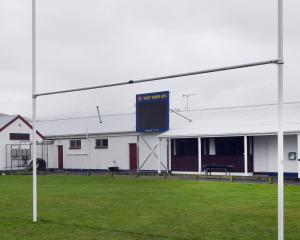Uber, the United Stated-based car service which allows people to summon rides from a mobile app, is planning to service every postcode in New Zealand including Otago and Southland, Auckland general manager Oscar Peppitt says.
''We're working hard to grow the service every day. We would love to be there as quickly as possible.''
He rejected allegations Uber was operating illegally since it started in Auckland in May.
The Uber drivers had the required documents to drive a taxi and operate for private hire, he said.
Mr Peppitt claimed an Uber vehicle was safer for passengers and drivers than a taxi.
''Uber's technology means drivers and riders are no longer anonymous - technology provides accountability.''
The Uber cashless payment system was more convenient for passengers and safer for drivers.
''Having Uber facilitate payments eliminates issues like robberies, passengers running from fares, fare disputes and overcharges. Uber builds more trust between taxi drivers and users, creating a safer experience for both.''
Legislation in New Zealand needed to be updated, Mr Peppitt said.
''An iPhone is not a taxi meter. Regulations in New Zealand were written at a time well before technology was being used this way, so the rules are obsolete. There is no relevant regulation contemplating how phones, technology and GPS can be used in calculating fares.''
The taxi meter issue had been raised in other countries and courts concluded an iPhone was not a taxi meter, he said.
Dunedin Taxis chairman Tony Ross said passengers were putting their safety at risk by using Uber.
''You pay your money and you take your chance.''
With a taxi, the passenger had a choice of what vehicle to use.
''If there's a row of taxis on a rank you don't have to take the first one, you can vet the drivers by looks, appearance, colour, creed or race.
''Whatever takes your fancy.''
Andrew Rutherford, of Dunedin, said he had everything required to drive for Uber and had contacted the company about becoming a driver in Dunedin.
''It would be good to have extra work through some other means that didn't require taxi depot fees.''
As Uber was operating in several countries where taxi fares were cheaper than in New Zealand, he expected it would work in Otago.
Mr Rutherford said he faced threats and intimidation from taxi drivers when he launched his Night Bus Dunedin service from the Octagon in May.
An Uber car would be as safe as a taxi because an Uber driver regularly criticised with low ratings by passengers would struggle for work, he said.
Mr Rutherford said if Uber operated in Dunedin, he would drive his car, rather than the bus.
How Uber works
•The San Francisco-based company's mobile app connects passengers with available drivers.
•The payment for the ride is settled with Uber, not the driver, with the passenger's credit card being billed after the ride.
•Uber's rates change when demand is high to entice more cars on the road to ensure reliability during busy times.
•When car supply was sufficient, the surge pricing stopped and the pricing returned to normal.
Advertisement













